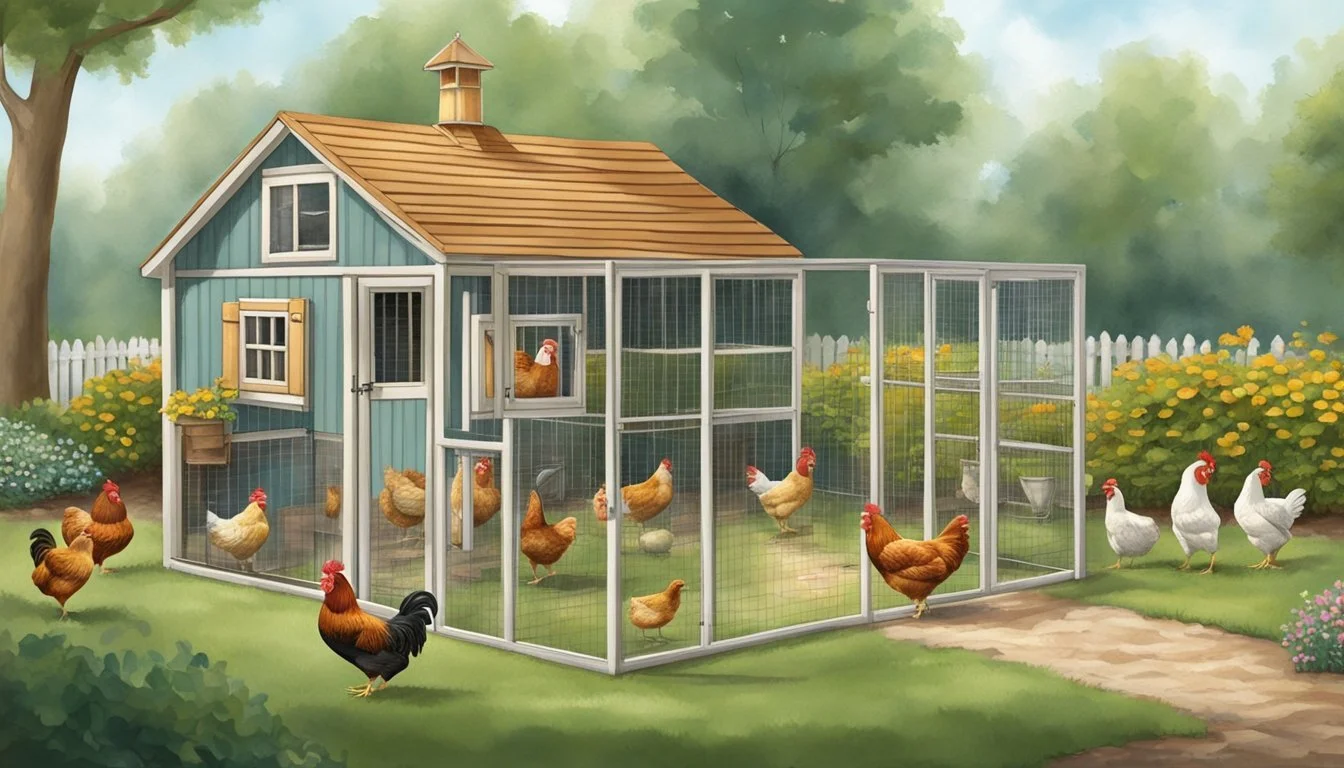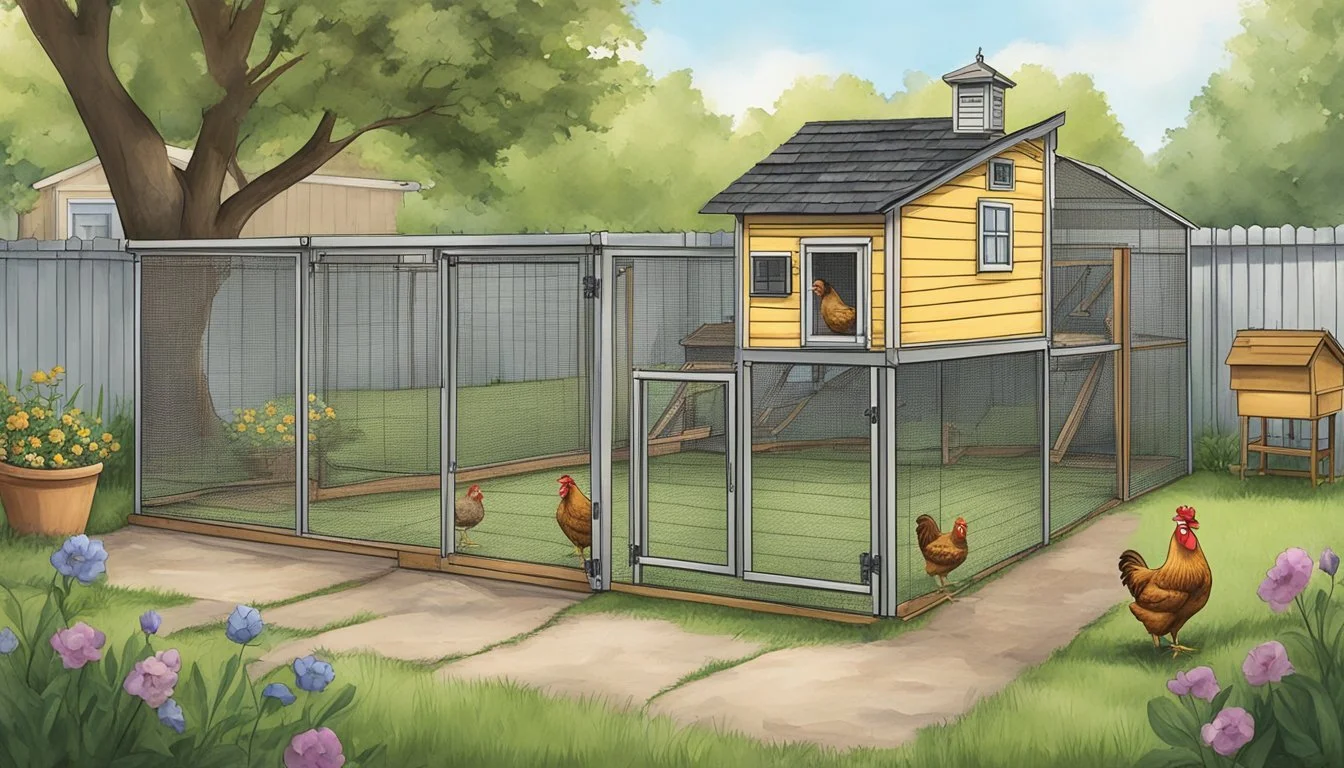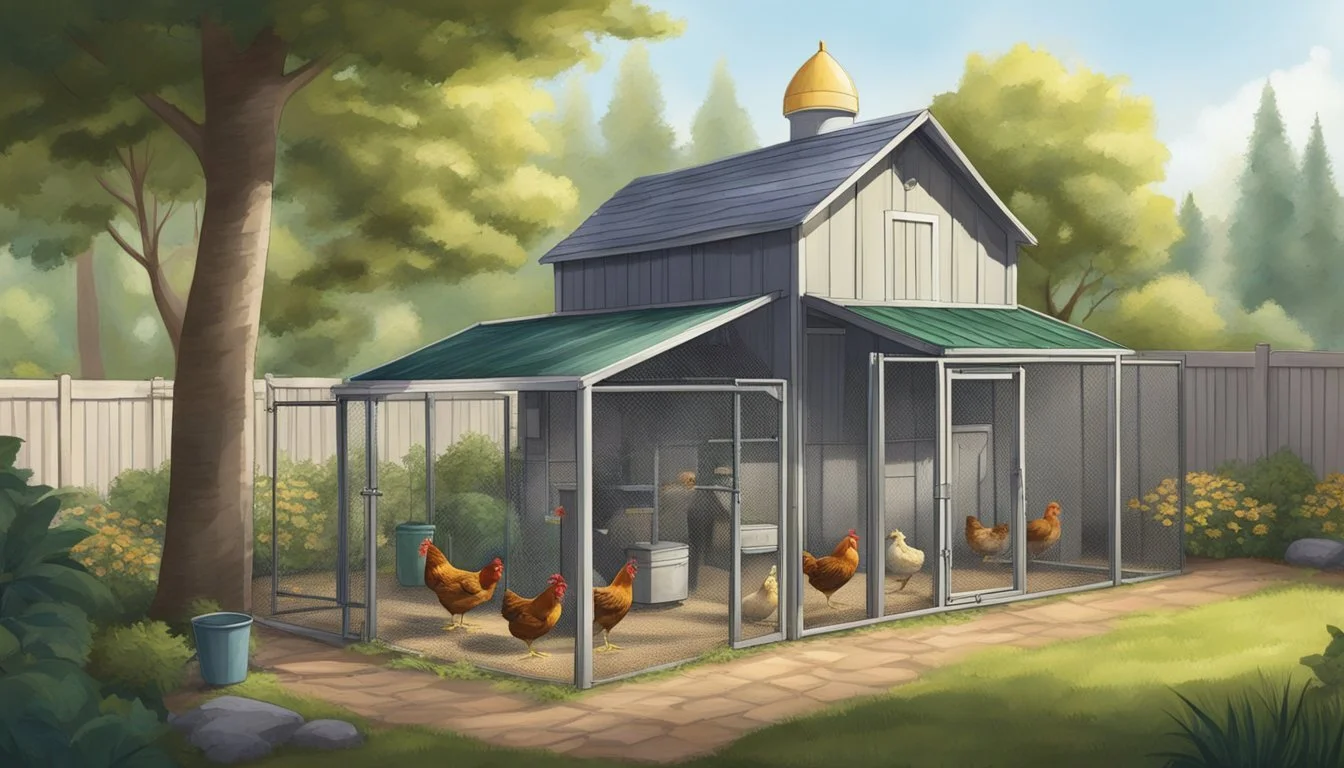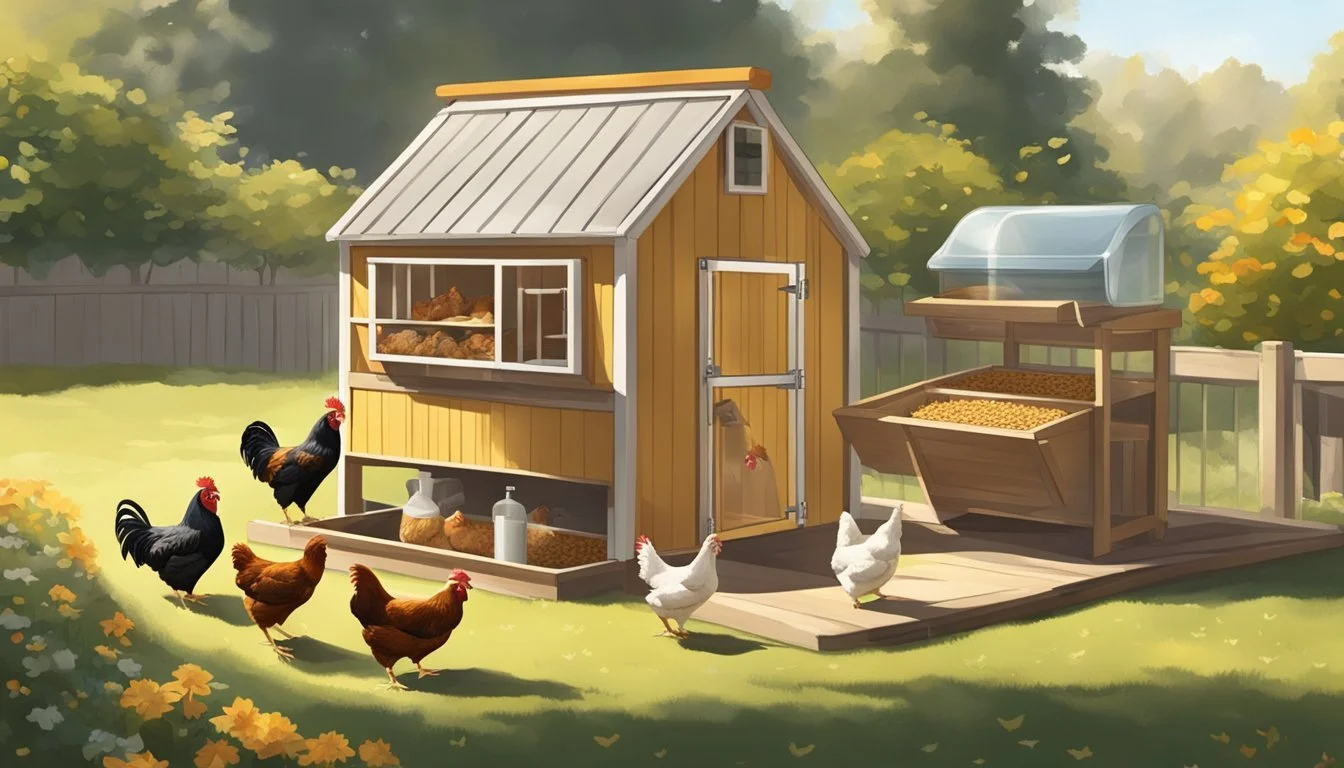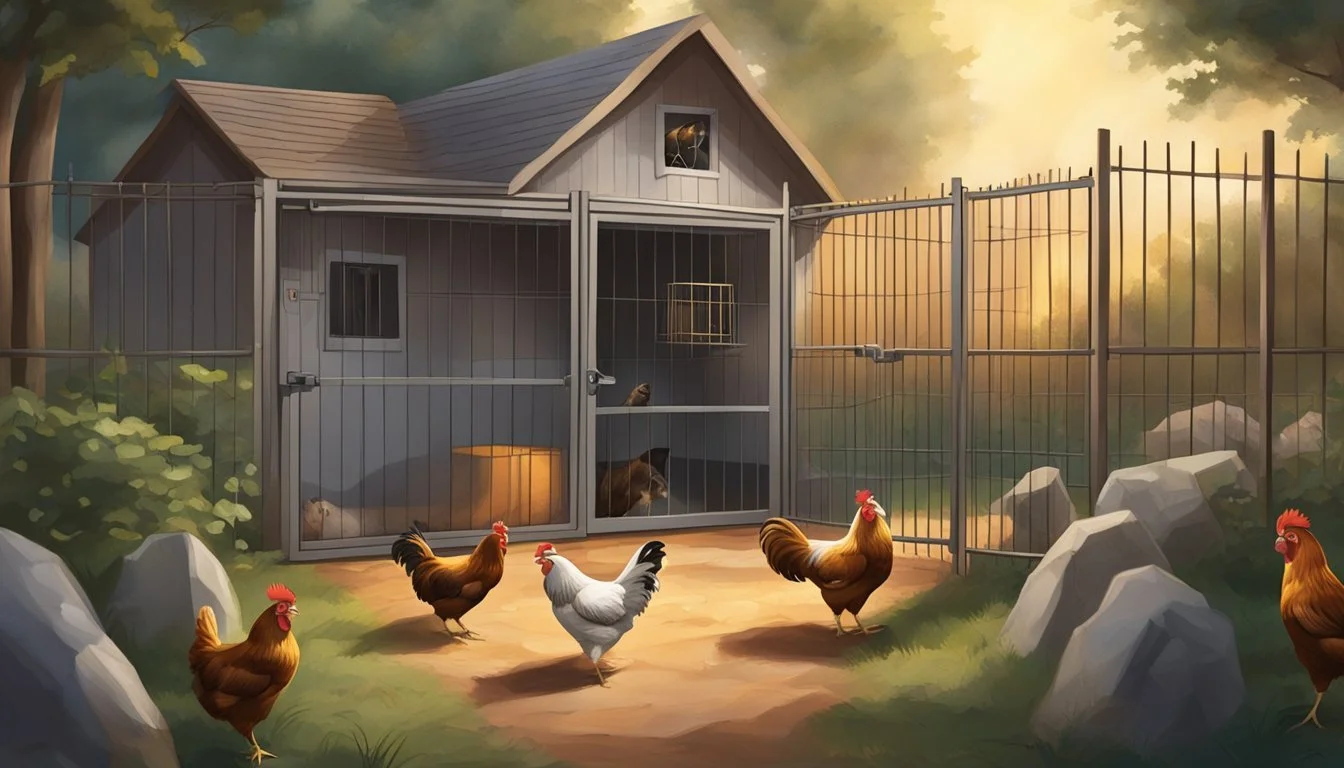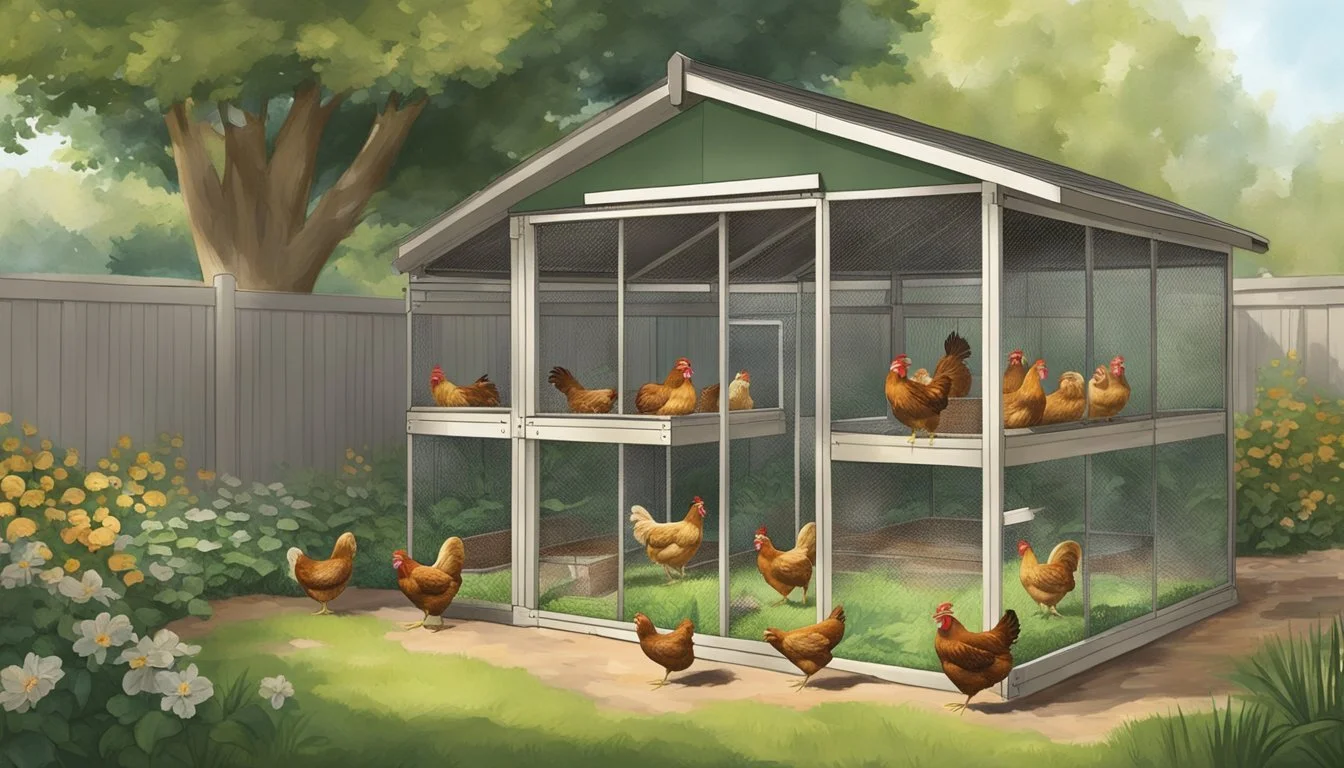Keeping Backyard Chickens in Warren, MI
Essential Tips for Urban Poultry Farming
Urban agriculture, including the raising of backyard chickens, has seen growing interest in cities across the United States. Warren, Michigan is no exception to this trend, offering residents the opportunity to embrace a slice of country life within the city's bounds. With the passage of new ordinances, Warren joins other Michigan cities in creating a framework that allows individuals to keep chickens on their property. This movement is not just a nod to self-sufficiency, but also an expansion of local food sources and a reinforcement of community bonds through shared interests.
Keeping chickens offers numerous benefits, ranging from a steady supply of fresh eggs to natural pest control and the joy of animal companionship. In Warren, the city's rules are designed to balance these benefits with the needs of the community, laying out clear guidelines for potential backyard poultry enthusiasts. Regulations include permit requirements from the City Clerk's Office and stipulations intended to maintain public health and neighborly harmony, such as prohibiting the slaughtering of chickens within city limits.
For Warren residents interested in joining the ranks of backyard chicken keepers, understanding and adhering to these local ordinances is crucial. A commitment to regular care is also essential, ensuring that chickens remain healthy and do not become a nuisance to neighbors. They must have access to clean food and water, and their housing should be secure from predators and well-maintained to keep odors in check. As the city of Warren has made provisions for such activities, residents can look towards contributing to a more sustainable lifestyle right in their own backyards.
Understanding Local Chicken Laws in Warren
Before setting up a backyard coop, residents of Warren, MI, must be aware of specific local regulations. These laws help maintain community standards and animal welfare.
City Ordinances and Zoning
The City of Warren enforces ordinances that specify where and how residents can keep chickens. These local ordinances are designed to adhere to zoning laws that promote public safety and sanitary conditions. Residents should consult the Warren City municipal code or the city clerk's office for detailed zoning information.
Permit Requirements
For Warren residents, a permit may be required to keep backyard chickens. Individuals must apply through the city's approval process, which involves ensuring their property complies with local standards. Details on obtaining a permit and any related fees can typically be found by contacting the city clerk or visiting the city's official website.
Number and Types of Chickens Allowed
Strict rules govern the number of chickens one can keep. In Warren, only three (3) hens are allowed for personal use. It is important to note that roosters and other types of fowl are prohibited to minimize noise and potential disturbances.
Regulations on Slaughtering
While backyard chickens can be kept for eggs or as pets, there are stringent regulations on slaughtering. Residents must adhere to standards set by the Michigan Department of Agriculture for humane treatment. It is crucial to check with local authorities for any restrictions or required methods of slaughtering.
Coop Design and Location
When designing a chicken coop in Warren, MI, residents must balance safety, comfort, and city regulations to ensure a successful backyard poultry experience.
Creating a Safe and Comfortable Coop
A chicken coop must be a sturdy and secure shelter that provides safety from predators and harsh weather. It should include the following:
Ventilation: Coops need proper airflow to keep chickens healthy, but without drafts directly on the birds.
Nesting Boxes: At least one box for every four hens is a good ratio, with easy access for egg collection.
Security: Materials used should be durable and properly fastened to protect against predators.
Chickens need space not only to roost but also to move around, so the coop's size should accommodate the number of hens kept.
Placement and Distance from Property Line
The placement of the chicken coop in the backyard is also governed by local ordinances:
Covered Enclosure: Coops in Warren must be covered to protect chickens from elements and predators.
Fenced Enclosure: Ensuring the chicken coop is within a fenced area can help contain chickens and protect them.
Distance: It's important to place the coop at a considerate distance from the property line, adhering to specific local regulations that dictate this spacing for neighborly courtesy and compliance.
Residents should also keep the coop in a location that's accessible for cleaning and maintenance while ensuring that it doesn't become a nuisance for neighbors.
Daily Care and Management
Successful backyard chicken-keeping in Warren, MI revolves around diligent daily care and management. Poultry keepers must provide consistent access to feed and fresh water, conduct health and welfare observations, and implement waste and odor management strategies to maintain a healthy flock.
Feeding and Nutrition
Chickens require a balanced diet to stay healthy. Keepers should provide a commercially prepared poultry feed that meets their flock's nutritional needs. Table scraps can be given as treats but should not exceed 10% of the chickens' diet to avoid nutritional imbalances. Fresh water should always be accessible, as chickens consume nearly three times as much water as feed.
Daily Feeding Checklist:
Fill feeders with age-appropriate poultry feed.
Limit table scraps and ensure they are non-toxic to chickens.
Check and refill water containers with clean water.
Health and Welfare Observations
Daily observation is crucial to ensure the health and welfare of backyard chickens. Keepers should look for signs of distress, illness, or injury. Healthy chickens are active and alert with smooth feathers and clear eyes. Any changes in behavior or appearance should be addressed promptly.
Physical Health Indicators:
Activity Level: Chickens should be alert, not lethargic.
Appearance: Feathers should be smooth; no signs of mites or lice.
Behavior: No unusual aggression or withdrawal from the flock.
Managing Waste and Odor
Proper cleaning and maintenance are essential to manage waste and control odor. Removal of manure should be done regularly to prevent the buildup of ammonia and attractants for pests. Bedding in coops and runs should be kept dry and changed frequently.
Waste Management Strategies:
Daily: Clean droppings from the coop and run.
Weekly: Replace or refresh bedding material.
Monthly: Conduct a deep clean of the entire coop.
Protecting Chickens from Predators and Pests
Maintaining the safety of backyard chickens in Warren, MI, involves a strategic approach to securing the coop and yard from various predators and pests. This ensures the flock's well-being and promotes a productive backyard poultry environment.
Predator-Proofing Your Coop and Yard
To safeguard chickens from potential predators, one must implement a variety of defensive measures:
Secure the Perimeter:
Fencing: Erect a fence at least 4 to 6 feet high and bury it 12 inches deep to deter digging predators.
Hardware Cloth: Cover windows and vents with hardware cloth instead of chicken wire to prevent raccoons and other small predators from reaching in.
Fortify the Coop:
Locks: Use predator-proof locks on coop doors—raccoons, for instance, can open simple latches.
Roosting Bars: Place roosting bars high inside the coop as chickens are highly vulnerable at night when many predators are active.
Protect the Run:
Overhead Cover: Install netting or a wire mesh over the run to guard against aerial predators such as hawks and owls.
Regular Inspections: Conduct daily checks for signs of attempted intrusions or weak spots.
Minimize Attractants:
Feed Storage: Store feed in secure, rodent-proof containers to avoid attracting rodents or other pests that can in turn draw larger predators.
Sanitation: Keep the coop clean; the build-up of droppings can attract flies and rodents.
By following these guidelines, one can create a secure environment for backyard chickens that mitigates the risks of predation and pest disturbance.
Maximizing Egg Production
To maximize egg production in Warren, MI, poultry enthusiasts must fine-tune their approaches, focusing on the chickens' nutrition, housing, and egg collection protocols.
Egg Collection and Storage
The process of egg collection should be regular and careful to ensure optimal quality and quantity of eggs. Chickens typically lay eggs once a day, and collecting eggs promptly can prevent breakage, spoilage, and discourage hens from developing habits like egg eating.
Storage of eggs is crucial in maintaining freshness and preventing bacterial growth. It is recommended to store eggs at a consistent temperature of about 45°F (7°C) with a humidity level of 70-80%. Eggs need to be kept away from strong-smelling foods as they can absorb odors due to their porous shells.
For proper egg storage, consider the following:
Refrigeration: Eggs should be refrigerated soon after collection to maintain freshness and minimize the risk of salmonella contamination.
Pointy End Down: Store eggs with the pointy end down to help keep the yolk centered.
Avoid washing: Washing can remove the protective bloom that coats the eggshell. If they are soiled, gently clean with fine sandpaper or a brush.
Community Relationship and Business Considerations
In Warren, Michigan, backyard chicken keepers must be cognizant of local ordinances and the impact of their activities on the community and potential business ventures. Residents are permitted to keep chickens following specific legal guidelines and are often drawn to the idea for the prospects of fresh eggs and possibly other chicken byproducts.
Selling Eggs and Chicken Byproducts
Local Ordinances: Residents of Warren must adhere to the city ordinances when considering the sale of eggs and chicken byproducts. They require that chickens be kept in proper enclosures and maintain standards for sanitation and noise control, which could influence egg production levels and the viability of selling eggs.
Inspection and Compliance: Keepers anticipating business ventures need to ensure their operations pass city inspections, focusing on the health and safety of the chickens, which directly affects the quality of byproducts.
Business Registration: Engaging in the sale of eggs or chicken byproducts necessitates a business license and adherence to state and local business regulations.
Engaging with Neighbors and the Local Community
Community Relations: It is important for chicken keepers to foster a positive relationship with their neighbors to mitigate complaints that could affect their ability to keep chickens.
Commitment to Education: Chicken keepers can organize informational sessions or collaborate with local gardening clubs to educate the community on the benefits and responsibilities of backyard chicken keeping.
Local Cooperation: By engaging with the community, residents can ensure that their chicken-keeping practices align with community expectations, thereby reducing friction and promoting understanding.
The specific rules and best practices for chicken keeping and related business activities underscore the importance of commitment to local laws, community harmony, and business savvy.
Garden Integration and Sustainable Practices
Integrating chickens into a backyard garden ecosystem in Warren, MI, can enhance garden health and contribute to sustainable living. Chickens serve as natural pest controllers, consuming common garden pests such as beetles, slugs, and larvae. By allowing chickens access to the garden area, preferably before planting or after harvest, gardeners can reduce the need for chemical pesticides.
Furthermore, chickens provide high-quality fertilizer through their manure. This nutrient-rich byproduct can be composted and added to garden soil, improving soil structure and fertility. Gardeners should ensure proper composting techniques to prevent pathogens from entering the garden.
When planning the integration:
Ensure sufficient space to prevent overcrowding.
Use proper enclosures to protect both chickens and garden areas.
Balance the time chickens spend in the garden to avoid damage to plants.
Below are recommended practices for a harmonious garden and chicken coexistence:
Fenced Rotation: Rotate chicken access to different garden sections to allow soil and plants to recover.
Supervised Foraging: Monitor chicken activity to minimize plant damage.
Compost Management: Regularly turn and maintain compost piles containing chicken manure.
Sustainable practices also involve adhering to local ordinances. Residents must comply with the correct number of chickens allowed and provide adequate housing as dictated by Warren's latest regulations and GAAMP standards.
By thoughtfully incorporating chickens into their backyard gardens, Warren residents can enjoy the multifaceted benefits of a more self-sufficient and environmentally friendly lifestyle.

